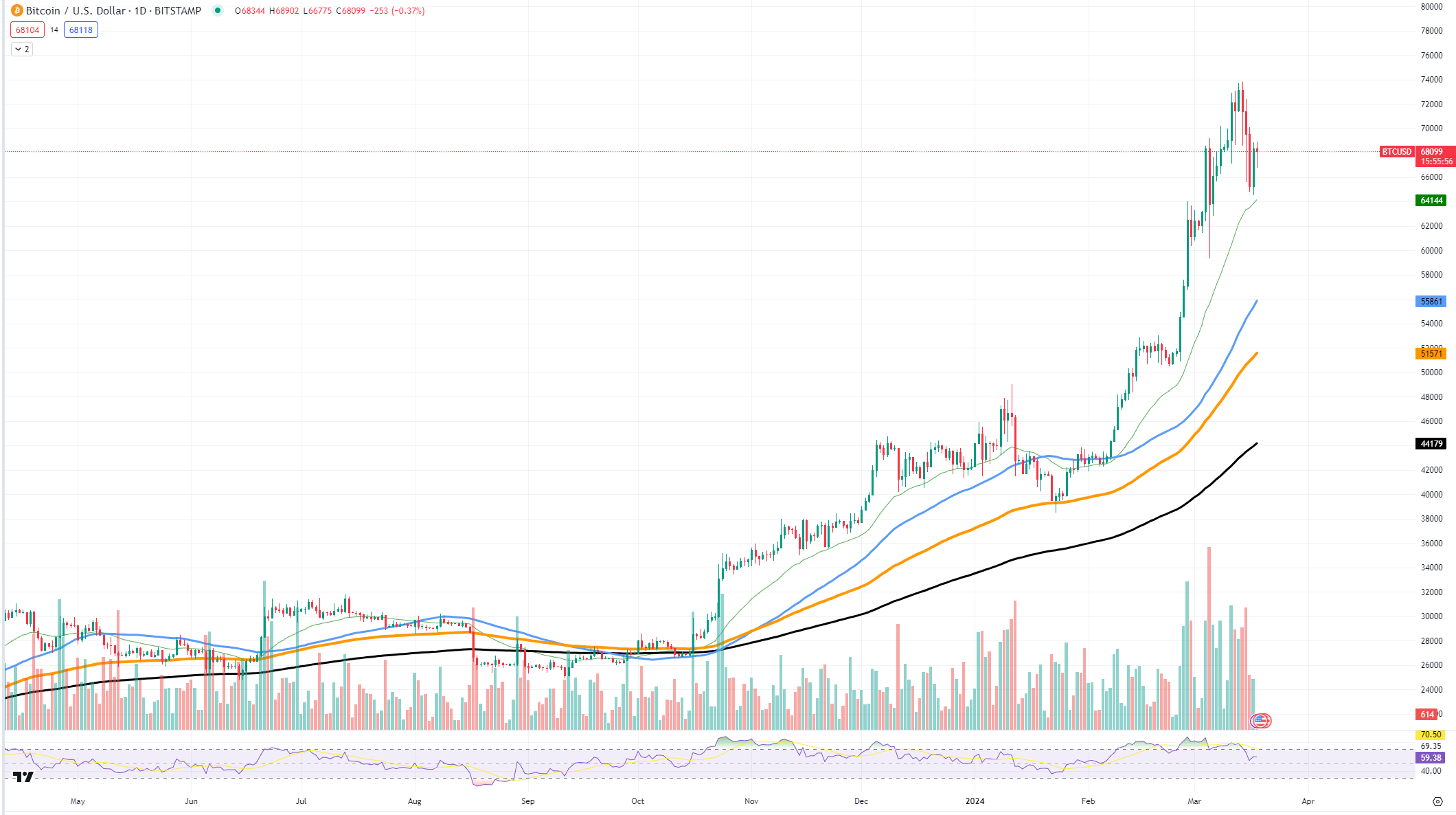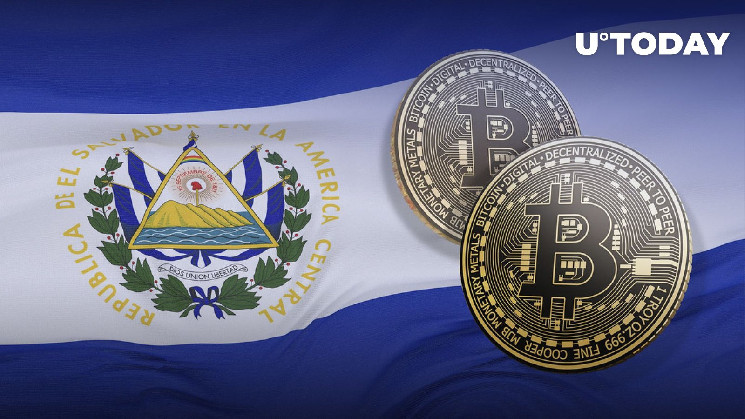Recent transaction data indicates that El Salvador may be escalating its strategy to accumulate Bitcoin, the digital gold of the 21st century. A cold wallet, identified as associated with El Salvador, received a transfer of 1 BTC from cryptocurrency exchange Bitfinex. Bitfinex is recognized for serving large institutional buyers on the cryptocurrency market, which suggests that the nation is continuously reinforcing its Bitcoin reserves.
El Salvador has been at the forefront of national Bitcoin adoption, consistently purchasing the cryptocurrency and integrating it into its economic framework. The latest transaction hints at a potential increase in the pace of acquisition. This move is significant not only for El Salvador's treasury but also as an indicator of a country leveraging the decentralized nature of Bitcoin to diversify its national reserves.

Analyzing Bitcoin's price chart, the digital currency has exhibited a robust uptrend over recent months. The Moving Averages (MAs) are in sequential alignment, with the 50-day MA above the 100-day, and both above the 200-day MA, signaling a strong bull market. Currently, Bitcoin is trading above the $60,000 mark, after a recent high near the $78,000 threshold. The Relative Strength Index (RSI), while retreating from an overbought condition, remains elevated, suggesting that the momentum could continue despite potential short-term volatility.
It is imperative to consider specific price levels and thresholds in predicting Bitcoin's future performance. Support levels are present at the 50-day MA around $58,000, followed by a more significant one at the $50,000 psychological mark, aligning with the 100-day MA. A breach below this could lead to a test of the 200-day MA near $44,000, which would be crucial in maintaining the long-term bullish outlook.
In the short to medium term, if the current momentum sustains and Bitcoin reclaims the $70,000 level, it may well target its previous peak or even set new highs, buoyed by positive sentiment and adoption news such as El Salvador's purchases. However, any adverse developments in the macroeconomic environment or regulatory spaces could contribute to a reevaluation of these trajectories.
 u.today
u.today
